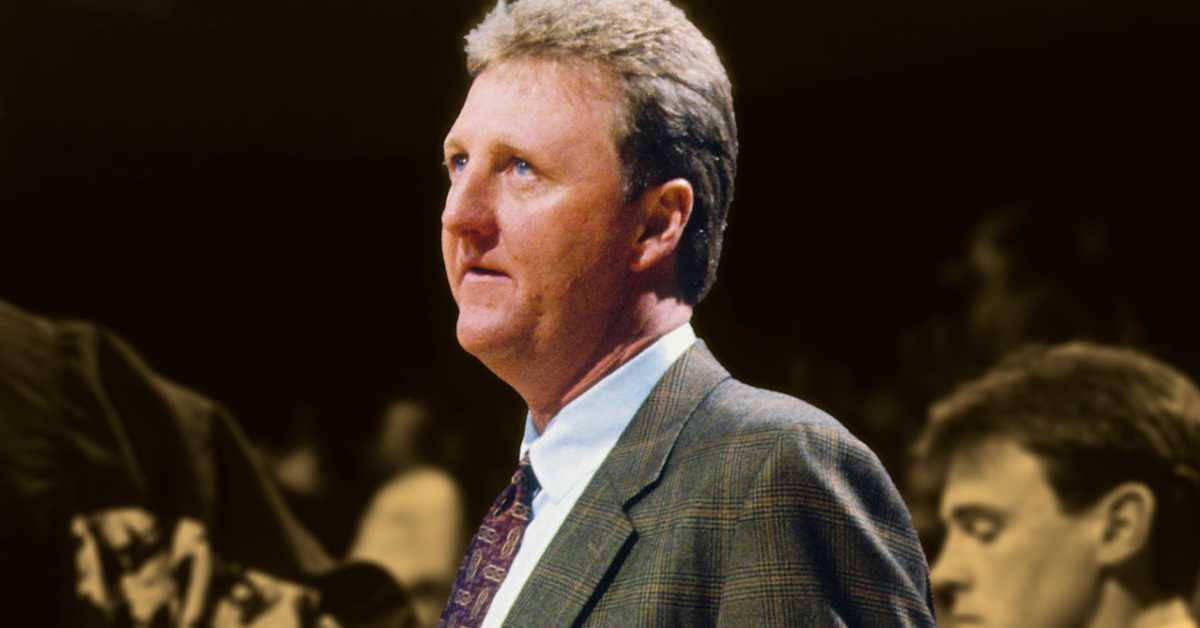"I was a little embarrassed about how the fans treated me" - Larry Bird on why it was tough coming to Boston as Pacers head coach

"I was a little embarrassed about how the fans treated me" - Larry Bird on why it was tough coming to Boston as Pacers head coach originally appeared on Basketball Network.For all his life, Larry Bird and the Boston Celtics have had a special connection.
It was his franchise through and through.
From the moment he stepped onto the parquet floor in 1979, drafted sixth overall after leading Indiana State to the NCAA title game, Bird had made Boston his basketball home.
If there was ever a path to coaching, many assumed it would begin right where everything else had, with the Celtics.That never happened.Instead, Bird's return to the sideline came from a different corner of the NBA map.
In 1997, five years after retiring from playing and a brief stint working in Boston's front office, Bird became the head coach of the Indiana Pacers, his home-state team.
And though the move was widely celebrated in Indiana, the thought of leading any franchise against the Celtics brought with it an uncomfortable emotional weight.Facing the Boston fansBird had spent over a decade creating unforgettable moments in the Boston Garden.
From battling Magic Johnson in the Finals to delivering clutch shots with ice in his veins, his playing days in green were the stuff of legends.
So, when he returned to the city, not as a Celtic but as the head coach of the Pacers, it was deeply personal."I was a little embarrassed about how the fans treated me," Bird confessed.
"I knew how they feel about me, because I played so hard for them and had some success.
Coming back and coaching a different team, that's difficult but I loved every minute of it."Even in a visiting suit, Boston fans treated Bird like one of their own.
They cheered during his introductions, offered standing ovations and made it clear that his years in green hadn't faded from memory.
But for Bird, it was a bittersweet experience, being honored in a place he once ruled, while now plotting against it.His path to Indiana began after a turbulent stint with Boston's front office.
Named special assistant to the Celtics in 1992, Bird had hoped to stay connected to the team post-retirement.
But the organization was mired in instability during that era, lingering from the tragic loss of Reggie Lewis in 1993, questionable draft decisions and a disconnect between former players and upper management.
Bird's role was largely undefined and as power dynamics shifted within the franchise, so did his influence.
It became clear over time that a return in a larger capacity such as head coach or executive wouldn't happen in Boston.
The separation was decisive.Indiana offered something different.
It was home, it was familiar and above all, it offered him full control.
When Donnie Walsh approached him about taking over coaching duties in 1997, Bird agreed on one condition that it would be for no more than three seasons.Related: "Better is only about championships" - Phil Jackson argued LeBron James can't surpass Michael Jordan without matching his six championshipsBird's returnBird's three years on the Indiana sidelines were anything but quiet.
He stepped into a roster already rich with talent, led by the mercurial Reggie Miller, and swiftly molded them into contenders.In his very first season as head coach, the NBA recognized what the Pacers already knew: Bird was special.
He took the team to a 58-24 record and pushed all the way to the Eastern Conference finals, earning NBA Coach of the Year honors in the process.It was his calm demeanor or sharp basketball mind that won respect so fast and the way he held everyone to a standard, unwavering and clear.
He built a competitive, hungry team.But one kind of game always gnawed at him a road matchup against his Celtics.
It was a battle he never truly wanted to face."To come back to Boston is always tough for me," Bird admitted.He had the Pacers playing like serious contenders.
In the 1998 Eastern Conference finals, they went toe-to-toe with Michael Jordan's Chicago Bulls, pushing them to seven games in what many consider one of the best conference finals of that era.
A year later, in 1999, Bird took the Pacers back to the conference finals again, this time falling short to the New York Knicks in a gritty series.In his third and final season, Bird led Indiana all the way to the NBA Finals, where they faced off against the newly formed Los Angeles Lakers duo of Kobe Bryant and Shaquille O'Neal.
Though the Pacers fell in six games, it showed Bird's ability to inspire and execute at the highest level, even from the bench.Then, true to his word, he stepped away.
No drama and second thoughts, just a quiet exit, much like the one he made in Boston years earlier.
Bird's coaching career ended as it began, on his own terms.
Yet every time he walked back into TD Garden, he felt the weight of history.
The cheers and banners all reminded him of what Boston meant and still means.Related: "I don't think I've dropped that much" - When 34-year-old Larry Bird ranked himself as still one of the NBA's most dominant playersThis story was originally reported by Basketball Network on Jul 27, 2025, where it first appeared..
This article has been shared from the original article on yahoo, here is the link to the original article.
